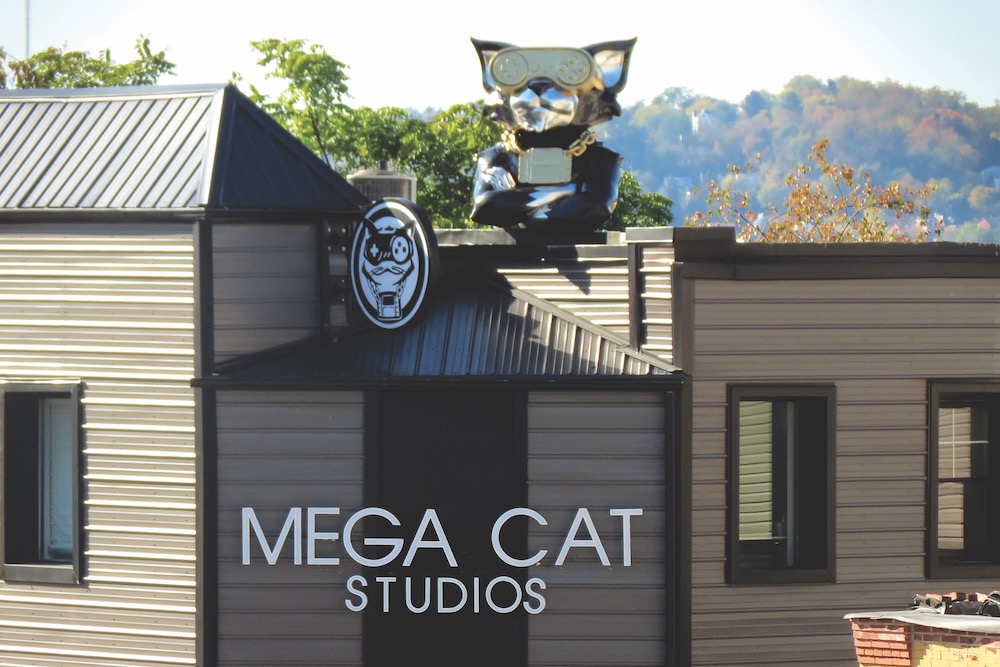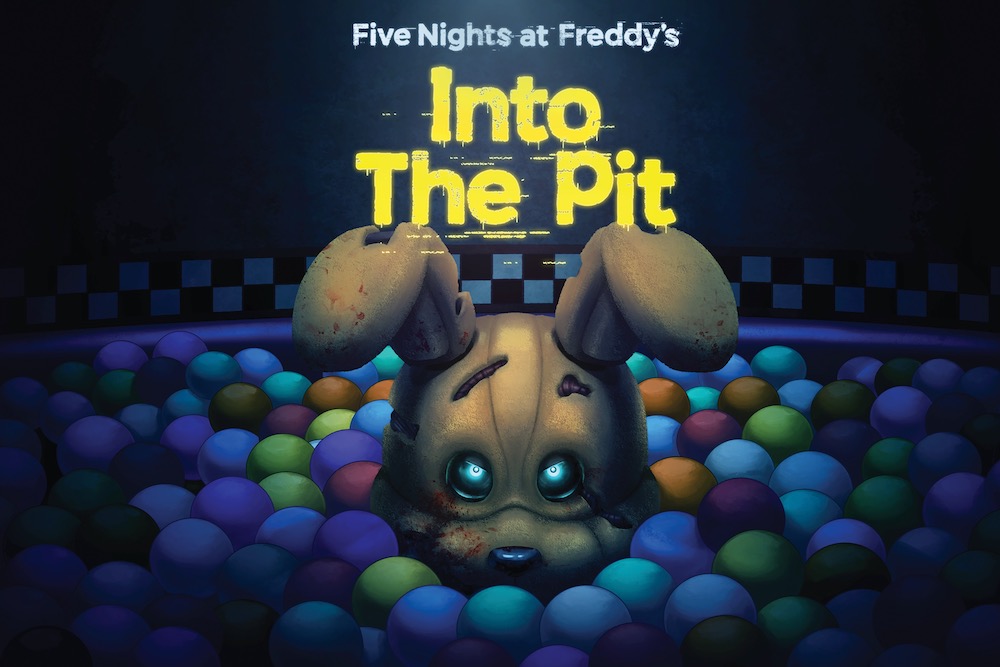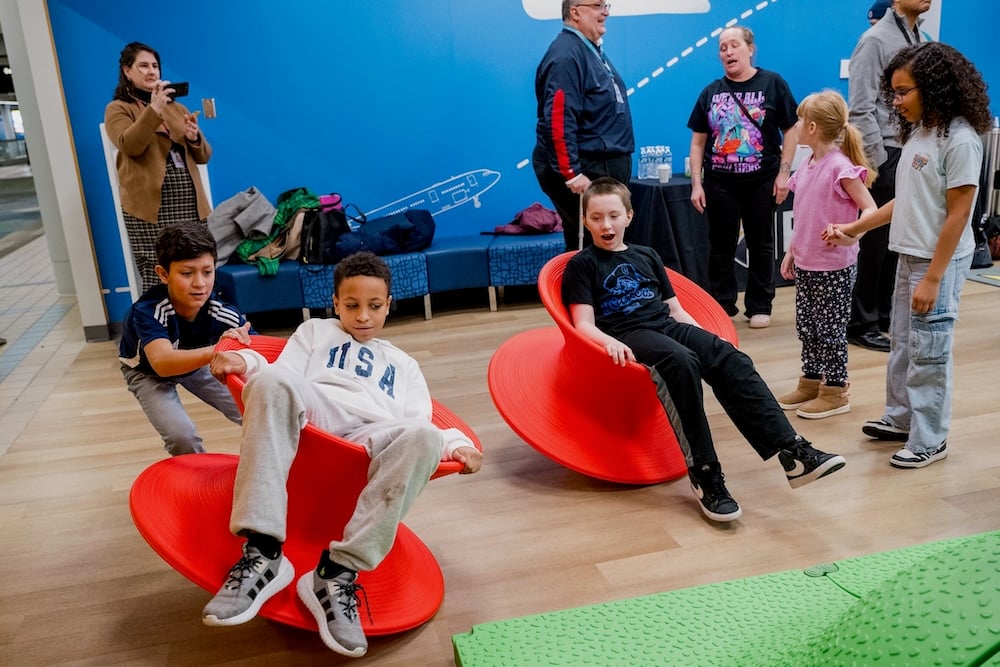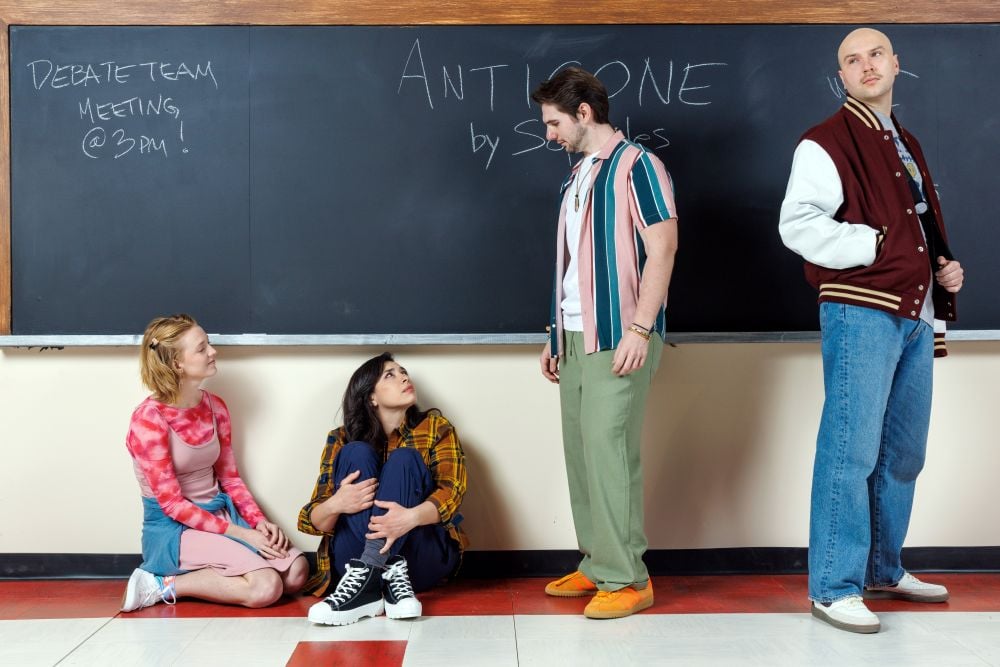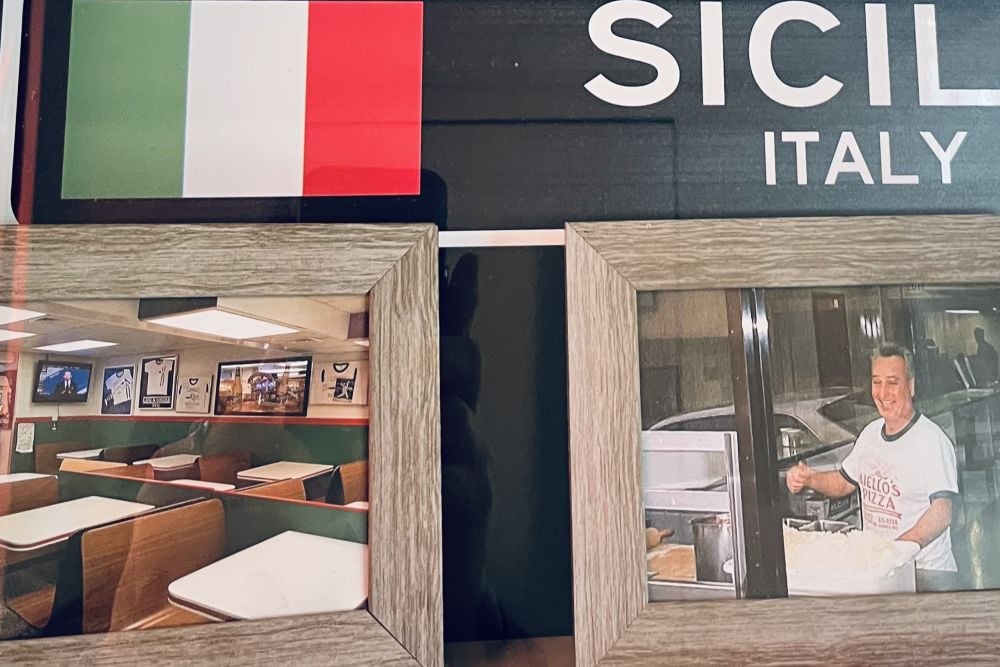Meet the Pittsburgh-Based Game Studio Leaving Its Mark on the Industry
The latest entry in the globally popular “Five Nights at Freddy’s” video-game series was developed on Bigelow Boulevard by Mega Cat Studios, a game studio with a retro aesthetic and work ethic.
The video-game franchise “Five Nights at Freddy’s” is among the biggest success stories in the entertainment industry over the past decade. The series, which takes place in a sinister, Chuck E. Cheese-esque restaurant, has sold millions of copies of more than a dozen games, spawning a fleet of merchandise and even a big-screen adaptation in 2023.
And the most recent “Five Nights at Freddy’s” game was made on Bigelow Boulevard.
Mega Cat Studios, based in Polish Hill, has for more than a decade created video games, with a focus on pixel art, a graphical style that uses the look of old-school games on modern systems. For years, they discussed a collaboration with the “Five Nights at Freddy’s” team; while those games look more modern, their ’90s-style restaurant/arcade setting makes the look of a natural fit.
Those conversations led to “Five Nights at Freddy’s: Into the Pit,” a retro-style adventure game released to coincide with the franchise’s 10th anniversary. Suddenly, a studio that began in co-founder James Deighan’s basement had teamed up with one of the biggest names in modern gaming.
Related: 5 Local Companies Making Their Mark on Pittsburgh — and Beyond
“It really blew out their expectations, too,” Deighan says. “It was just the strangest, slowest burn that went well beyond all our wildest dreams for success.”
It may be the most high-profile hit in the Mega Cat library, but it’s far from the first. At the time that “Five Nights at Freddy’s: Into the Pit” was blowing up on YouTube and Twitch, another Mega Cat creation, “Backyard Baseball ’97,” was on best-selling charts globally.
The simultaneous success of those two titles represents a high-water mark for Mega Cat, but the studio is no newcomer; they’ve released more than 80 games, including prior hits such as “WrestleQuest,” a wrestling-themed role-playing game, and “Renfield: Bring Your Own Blood,” a tie-in game to last year’s Nicolas Cage vampire movie.
Working with globally recognized game franchises and Hollywood studios is a far cry from the company’s origins. “We all met through retro video game collecting,” Deighan says. “We were doing a different business with software automation and e-commerce … [but] the really fun part of our job was this video-game distraction. One day, we decided to just jump off the cliff and just focus on that.”
A small group of programmers and devotees designed the company’s earliest games. They gained some attention by taking the unusual step of releasing physical copies of some of those games — painstakingly creating actual game cartridges that could be played in generations-old gaming systems. That undeniably cool yet retro-minded touch earned Mega Cat notoriety in the crowded game development industry.
“We’ve always been trying to capture the [feeling] of going to Hills with your grandma, coming back home, holding [a new video game] in the backseat — feeling it, touching it,” says Zack Manko, Mega Cat’s head of studio. “We’ve tried to maintain that idea even in our modern games.”
Retro-style games and new games that use pixel art have grown considerably since Mega Cat’s founding, particularly on platforms like Nintendo Switch and mobile devices. It’s a development that Deighan anticipated — and compares to a similar trend in the music industry.
“We definitely saw this coming — the ‘vinyl of gaming’ is definitely not new.”
The company too has grown considerably. The former basement operation now employs more than 100 people across the country (and staffs a satellite office in the Philippines), including 40 employees based in Pittsburgh.
Some of those Pittsburgh-based employees did not grow up in the era of pixel-art games — but did grow up playing “Five Nights at Freddy’s.” Madison Petrick, Mega Cat’s narrative designer, began playing the series in college. “I was always interested in how big of a psychological phenomenon it was — the game made itself successful through its fandom.”
Petrick was the head writer on “Into the Pit.” Piper Bertovich, the studio’s visual lead, worked in quality assurance while the game was in development — but her knowledge of the franchise made her a key part of the team, as she was unofficially dubbed the “Chief ‘Five Nights at Freddy’s’ Officer.”
“I remember sitting in high school, and everyone said, ‘Have you heard about Freddy’s?’ I went home and binged an entire [YouTube] playlist [about the game],” Bertovich says. “I was like, ‘This is my life now.’” To find herself working on a “Five Nights at Freddy’s” game, then, was “a dream come true.”
Mega Cat is currently working on “Music Festival Tycoon,” a riff on the “Rollercoaster Tycoon” series that will task players with booking and running the ultimate Coachella-style concert. There’s also a surprise project coming in 2025 that promises to be the most ambitious of the studio’s creations to date.
Despite the lure of major game-design hubs on the coast, Deighan and Mega Cat are determined to continue developing their creations in the Steel City. “There’s a huge emphasis here on building culture and talent — specifically in Pittsburgh.”

